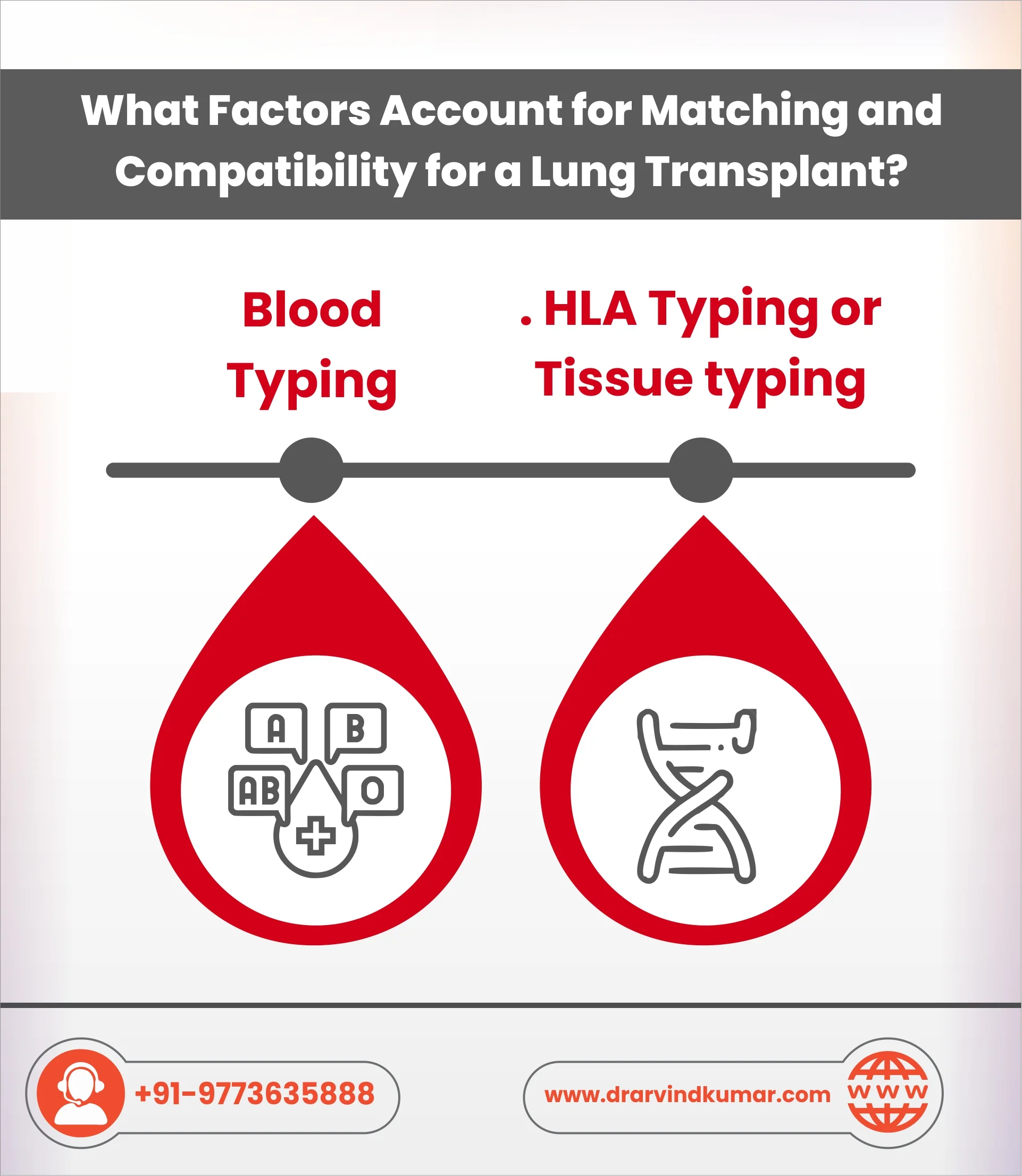Lung transplantation is an extensive procedure that involves a lot of compatibility matching and pre-operative precautions to ensure a better success rate. Amidst all the evaluation factors, the blood type of the donor and recipient spark a lot of questions.
Is it mandatory for the donor and the recipient to be of the same blood type? Is it possible to conduct a lung transplantation procedure without having the same blood type?
These are some of the most common questions that most lung transplant patients have prior to undergoing the surgery. If you have these predicaments, chances are that your doctor will walk you through each one of those queries in detail.
We shall discuss more the importance of matching the lung transplant blood type of the patient and the donor. Can a family member donate a lung?
What Factors Account for Matching and Compatibility for a Lung Transplant?
Whenever it comes to organ transplantation, there are several factors at play. Since lungs are highly sensitive and are at maximum risk of chronic rejection after the transplant, it isn’t surprising that the team of surgeons and doctors conducting the transplantation will indulge in comprehensive planning before the procedure.
Ideally, there are multiple factors that influence the matching and compatibility of a lung transplant.
The top two factors include:-
- Blood typing
- Tissue typing or HLA typing
Failure to prioritize and cross-check each of these factors will lead to tissue rejection following the lung transplantation in the recipient.
To understand the importance of each of these factors, let us walk you through them individually.

1. Blood Typing
In humans, we know of four primary blood groups or blood types – A, B, AB, and O. Amidst them, O is the most common blood group in people.
When it comes to determining the blood type for a lung transplant, analyzing the blood group of both the donor and the recipient is vital.
For successful lung transplantation, it is mandatory for the donor and the recipient to have the same blood type. They follow the same principles as with blood transfusion.
However, also known as Universal donors, people with blood type O can donate their lungs to anyone. Similarly, people with blood type AB can be a universal recipient.
When it comes to lung transplantation, ensuring that both the donor and the recipient have the same or compatible blood type is the first step in the surgery. Here’s a quick rundown for a better understanding:
| Blood Type | Who You can Donate to? |
| Type O | Type O, A, B, AB |
| Type A | Type A, AB |
| Type B | Type B, AB |
| Type AB | Type AB |
Recipients who receive their lungs from a donor with an incompatible blood type will end up rejecting the donor lungs, leading to death or other post-transplantation complications. Hence, it isn’t surprising that the first criterion for lung transplantation is to determine the compatibility of the blood groups of the donor and recipient.
2. HLA Typing or Tissue typing
Once the blood groups are matched and they turn out to be compatible, the next step to analyzing the compatibility of the donor and recipient is tissue typing.
HLA or Human Leukocyte Antigen is the vector the body uses to fight against foreign substances. Determining the potency of the HLA proteins in the recipient of a lung transplant procedure is crucial. Doing so ensures that there are minimal risks of tissue rejection in the patient after the transplantation.
There are instances wherein the recipient is HLA-sensitive. This means that the recipient patient has already developed antibodies against the donor’s HLA. This will lead to incompatible lung transplantation, eliciting high risks of failure in the lung transplantation procedure.
Not doing comprehensive tissue typing leads to heightened risks of the transplanted organ failing in the recipient’s body.
Although not every person is born with HLA sensitivity, the risks of it tend to develop over time due to exposure to different kinds of foreign substances.
Irrespective of the severity and urgency, these compatibility and matching tests are mandatory for every lung transplant recipient.
Conclusion
Checking the matching criteria and compatibility between the donor and the recipient of the lung transplantation is crucial for a successful lung transplant. Failing to prioritize these criteria typically ends up in tissue rejection in the recipient and sometimes results in fatal outcomes too.
At Medanta, Dr. Arvind and his team of expert and experienced lung transplant doctors and surgeons are known for higher success rates in lung transplantation pan India.
For more details about the lung transplantation program, visit https://drarvindkumar.com/contact-us.php.
FAQs
Does blood type affect lung transplant?
Ensuring blood type is part of the pre-operative evaluation before lung transplantation. Incompatible blood types between the donor and the recipient can often lead to risks of chronic rejection.
What has to match for a lung transplant?
Besides the blood type, it is mandatory for the recipient to not be HLA-sensitive to undergo successful lung transplantation.

.webp)



